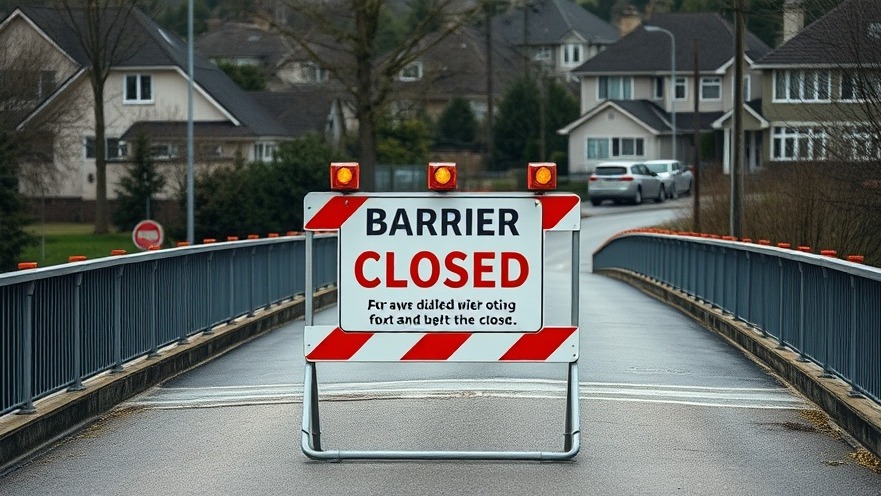
Bridge Repairs Trigger a State of Emergency in Terrebonne Parish
In Terrebonne Parish, Louisiana, the start of crucial repairs on the Boudreaux Canal Bridge has led to the closure of seven bridges across the area, compelling local officials to declare a State of Emergency. The Louisiana Department of Transportation and Development (DOTD) announced plans for phased repairs set to begin this week, hoping to alleviate local travel disruptions that have been burdensome for the community.
What Led to the Closures?
These closures result from a series of structural assessments that revealed severe safety concerns on several bridges, including the Boudreaux Canal Bridge in Chauvin. The State of Emergency comes as a response not just to the immediate safety concerns but also the potential impact on daily commuting and transport in the region. Officials believe that prompt action is necessary to protect the well-being of residents who rely on these vital connections.
Impact on Residents and Local Economy
The seven bridge closures significantly hinder the East-West connectivity within the parish, complicating access to schools, hospitals, and businesses. Local residents are expressing their concerns over increased travel times and potential economic ramifications, as traffic rerouting can deter customers from visiting local businesses. Many are asking how long these closures will last and what support will be available during this challenging period.
Looking Ahead: Expected Timeline for Repairs
The DOTD has released a timeline for the repair works, emphasizing their commitment to expedite the process as much as possible. The phased repairs aim to ensure the safety of the structural integrity of each bridge while minimizing traffic disruptions. DOTD officials reassure the public that updates will be provided regularly to keep everyone informed on progress and reopening schedules.
Comparative Challenges: Other Areas Facing Similar Issues
This situation in Terrebonne Parish is emblematic of broader infrastructural issues faced in many regions across the United States. Cities from coast to coast are grappling with aging infrastructure and increasingly complex traffic needs. A striking similarity can be found in areas like rural Arkansas and parts of California, where neglected bridges and roads have led to urgent repair campaigns.
Community Response and Support Initiatives
Local government officials are emphasizing community support during these closures, encouraging residents to participate in town hall meetings to voice concerns and seek solutions. Initiatives may include emergency transport services for essential needs and localized economic support assistance to help mitigate the impact of travel inconveniences.
Neighboring Areas: Preparing for Safety Assessments
In light of the closures, neighboring parishes are also beginning assessments on their bridge infrastructures. With aging systems across Louisiana, many leaders are advocating for statewide funding and legislative reforms to prioritize infrastructure improvements to avoid future crises.
Conclusion: Staying Informed and Prepared
The current circumstances in Terrebonne Parish serve as a reminder of the importance of maintaining infrastructure to support modern living conditions. As repairs to the Boudreaux Canal Bridge and others unfold, citizens must stay informed about developments. It is vital for residents to engage with local government initiatives while considering safe alternative routes and travel plans.
Stay tuned for updates as the situation develops, and consider exploring your local government’s resources for information on emergency assistance programs that may be available to those impacted during this period.
 Add Row
Add Row  Add
Add 



Write A Comment